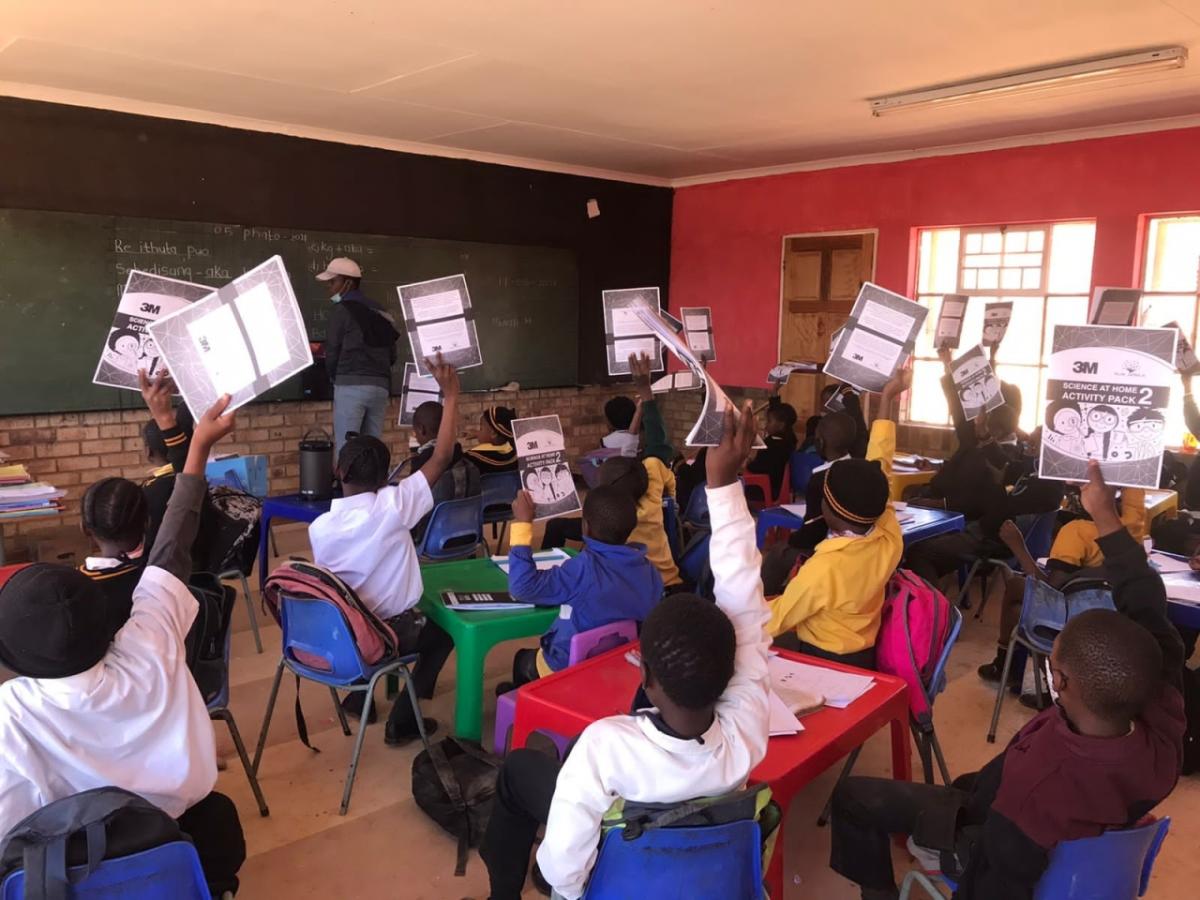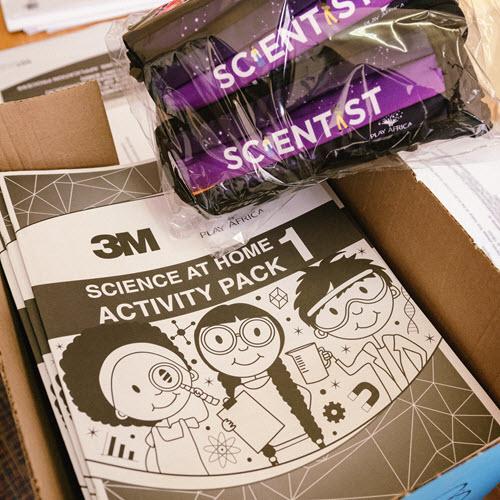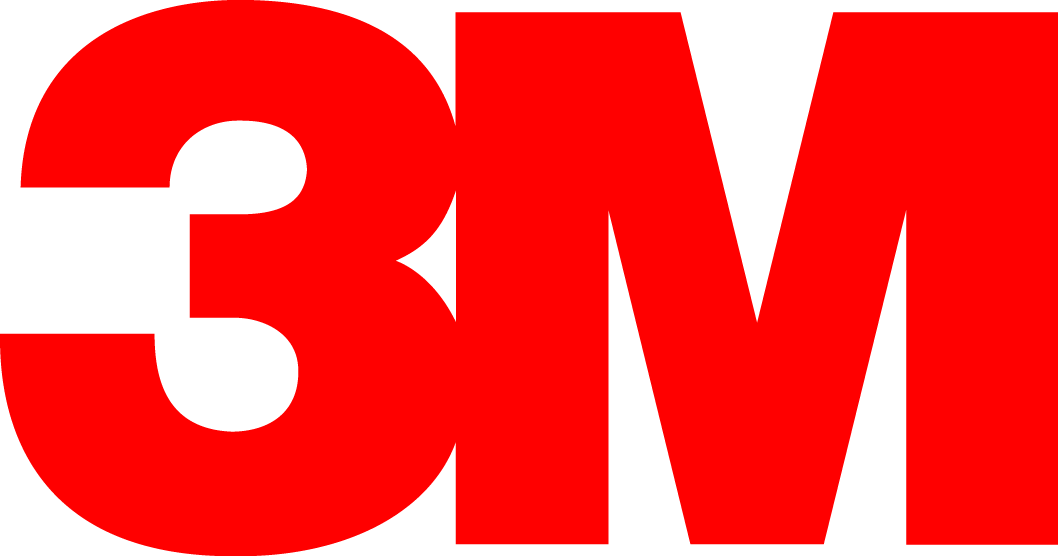3M and Education Non-Profit Play Africa Bridge Stem Access With Science at Home
UNESCO estimates that 1.2 billion school children around the world had their education put on hold due to pandemic-related closures in 2020. In fact, between March and April of last year, more than 90% of the world’s students faced some form of nationwide school closure.
At the onset of the pandemic, 3M created Science at Home for educators, parents and schoolchildren adjusting to new forms of learning. This free, virtual resource provides step by step science learning with over 30 DIY science experiment videos. Using common household items, the experiments are taught by real 3M scientists with the help of special guests, influencers and education partners.
Although creating a digital STEM (science, technology, engineering and mathematics) program accessible anywhere was of the utmost importance, so too was the recognition that not all of the world’s children have readily available internet.
Glen Bvuma, Brand & Communications Specialist for 3M Middle East & Africa, saw in real time the ways in which COVID-19 and a lack of access was impacting his community in Johannesburg, South Africa.
“Although internet is available in parts of our region, there are areas in Africa and South Africa, specifically, that are still behind with regards to connectivity,” Glen said. “In Johannesburg, there are some areas and schools which have no internet connectivity, which makes remote schooling or learning challenging.”
Although Science at Home was implemented virtually in areas with connectivity, the team sought to tackle the problem of access by fusing the learning resources of Science at Home with the expertise of regional non-profit, Play Africa.
Play Africa is South Africa’s pioneering children’s museum and educational makerspace, which empowers children with 21st-century skills in the hope of elevating a new generation to build Africa’s future.
“Educational equity gaps are pervasive in South Africa, which can also be seen in racial and gender gaps,” said Tebogo Dube, a program manager at Play Africa. “We strive to help mitigate against the widening of these gaps, by working with parents to support children’s playful learning at home and bringing pop-up learning experiences to children around the city.”
As human-centered design is at the core of Play Africa, creating a tangible, at-home version of Science at Home was key.
“When we saw what 3M had done in creating Science at Home, we realized it was science education gold,” said Ann Simmonds, Visitor Experience Coordinator of Play Africa. “But digital divides would mean that not everyone in South Africa could access the materials.”
Play Africa brainstormed ideas with 3M to help learners who weren't able to access the virtual experiments. Together they converted the science experiments to activity packs.
“We decided to create illustrated booklets that we could print and distribute in hard copy,” said Gretchen Wilson-Prangley, founder and CEO of Play Africa. “Part of the design process included illustrations of African girls and boys on the cover, because we want children to see themselves reflected in the booklets.”
Play Africa designed the booklets to be black and white, to keep costs as low as possible for printing and uploading digital PDFs to their website. Now anyone across Africa – or around the world – can download the small files and print them out.
For 3M’s Glen Bvuma, the collaborative process meant an opportunity to engage a wider group of individuals in his region, while creating the best avenues for access to STEM learning.
“Children need exposure to STEM, whether it is in the Middle East and Africa or globally, to best solve life’s challenges.” Glen said. “Resources such as Science at Home evokes curiosity amongst children. We want to reach as many children as possible and strive to do that through collaboration.”
For Play Africa, the ability to create and distribute the booklets to a vast number of schools is an opportunity to spread STEM access even to this day.
“Every child has the right to science and STEM learning,” said Futhi Mbongwe, Play Africa Operations Manager. “We’re bridging digital divides and removing barriers to access high-quality science education in Africa. Together, we’re striving to create more equity in science and unlock new pathways to STEM careers and skilled trades.”
As of September 2021, almost 10,000 printed Science at Home booklets have been given out across South Africa.
This is not the first time 3M has worked with Play Africa. In 2020, Play Africa received a $50,000 3M Gives grant for their “I am a Scientist” program, which seeks to encourage STEM learning to South African children of different backgrounds, ages, abilities and interests – with a focus on marginalized, underserved and vulnerable communities.



